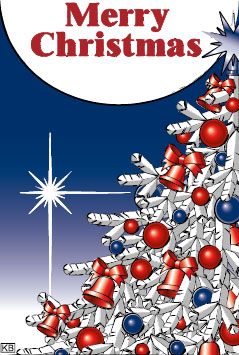
1. Dopasuj poniższe zdania
(1-4) do odpowiadających
im zasad użycia present
simple (a-d).
a)
czynności i zjawiska stałe, powtarzające się regularnie2
b)
c)
d)
zjawiska fizyczne i przyrodnicze4
1. I don’t like spaghetti.
2. Does Mr Smith work here? No, he doesn’t.
3. I always do the housework in the evening.
4. Tar melts quickly when the weather’s hot.
2. Uzupełnij poniższy tekst czasownikami w odpowiedniej formie.
Mr Jones _______ wakes up(wake up) at 5.30 am, he _______ doesn’t
eat(not eat) breakfast, only _______ drinks(drink) coffee and _______eat
(eat) a sandwich later. He usually _______ comes(come) to school about half an hour before the students and _______makes
(make) sure everything is ready when the students _______ arive(arrive). Then, the first bell _______ rings(ring) and the lessons
_______ begins(begin). By the end of the day some students _______ don’t go(not go) home but _______ come(come) to ask for extra
help. In the afternoon, after lunch, Mr Jones _______prepares (prepare) for the next day’s activities and _______ does(do) some
paperwork. In the evening he and his wife _______ have(have) dinner together, and then _______ do(do) some housework. Before going to sleep Mr Jones _______watches(watch) television, _______ corrects(correct) tests and _______ plans(plan) the lessons.
3. a) Odtwórz w pamięci dzień pana Jonesa, zwracając uwagę na zastosownie czasowników z –s dla
opisania czynnności w 3. osobie liczby pojedynczej.
b) Jak różni się Twoja praca od pracy nauczyciela? Postaraj się na głos opisać swój dzień, np. I don’t get
up at 5. 30. I don’t teach students but I supervise a building site, etc.
CHRISTMAS IN POLAND
4. Podane poniżej zdania są fałszywe. Popraw je według wzoru, używając następujących wyrażeń:
Christmas Eve, before, end, remember,
under the Christmas tree, red borsch
and carp, sing Christmas carols,
tablecloth, two days, bathtub
Example
1. The most important day is 26 December.
The most important day isn’t 26 December.
The most important day is Christmas Eve.
2. After the supper people read
newspapers.
a)
b)
………………………………… people sing Christmas carols
3. Children decorate the Christmas
tree after supper.
a)
b)
4. Christmas lasts one week.
a)
b)
5. In many houses a carp swims in
the washbasin.
a)
b)
6. Many Polish families put some hay
under the table.
a)
b)
………………………………… under the tablecloth
7. Memebers of the family put the
presents on the balcony.
a)
b)
………………………………… . the presents under the Christmas tree.
8. People forget to leave an empty
seat for an unexpected guest.
a)
b)
………………………………… People remember to leave
9. The feast usually consists of
chicken soup, salmon and many
other dishes.
a)
………………………………… doesn’t consist of
b)
………………………………… consists of red borsh, carp and many other dishes
10. The supper finishes when the first
star appears in the sky.
a)
b)
………………………………… The supper begins when
5. Ułóż pytania do ostatniej części zdań z zad. 3.
Example:
1. What is the most important day?
2.
………………………………… What do people do after supper?
3.
………………………………… When do
children decorate the Christmas tree?
4.
………………………………… How long does Christmas last?
5.
………………………………… Where does the carp swim?
6.
………………………………… Where do many Polish families put the hay?
7.
………………………………… Where do they put the presents?
8.
………………………………… Who do the people leave an empty seat for?
9.
………………………………… What does the feast usually consist of?
10.
………………………………… When does the
supper finish/ begin?
ŻYCZENIA NA RÓŻNE OKAZJE
Świąteczne i noworoczne:
Wish you a Merry Christmas
Happy Christmas!
Happy Easter!
Happy New Year!
Best Wishes for the New Year.
Miłego spędzenia czasu:
Have a good day.
Have a good trip.
Enjoy your weekend.
Have a good time at the concert.
Have a good time!
Enjoy yourself!
Urodziny:
Happy birthday!
Good luck on your fourtieth birthday!
Many happy returns!
May you live to be 100!
Rocznice:
Congratulations!
Best wishes on your fifteenth anniversary!
Różne
May all your wishes come true.
Congratulations on passing your exam!
Słowniczek:
activities – czynności, zajęcia
paperwork – praca papierkowa
appear – pojawiać się
balcony – balkon
leave – opóścić, zostawić
bathtub – wanna
borsh/ borsсh – barszcz
carp – karp
chicken soup – rosół z kury
Christmas carols – kolędy
Christmas Eve – wigilia
Christmas tree – choinka
last – trwać
washbasin – umywalka
hay – siano
consist of – składać się z
dish – danie; naczynie
extra – dodatkowy
guest – gość
feast – uroczysty posiłek; uczta
housework – prace domowe
make sure – upewnić się
arrive – przybyć
melt – topić się
prepare – przygotowywać się
ring – dzwonić
begin – zaczynać
salmon – łosoś
seat – miejsce siedzące
supervise – nadzorować
tablecloth – obrus
tar – słoma
unexpected – niespodziewany




